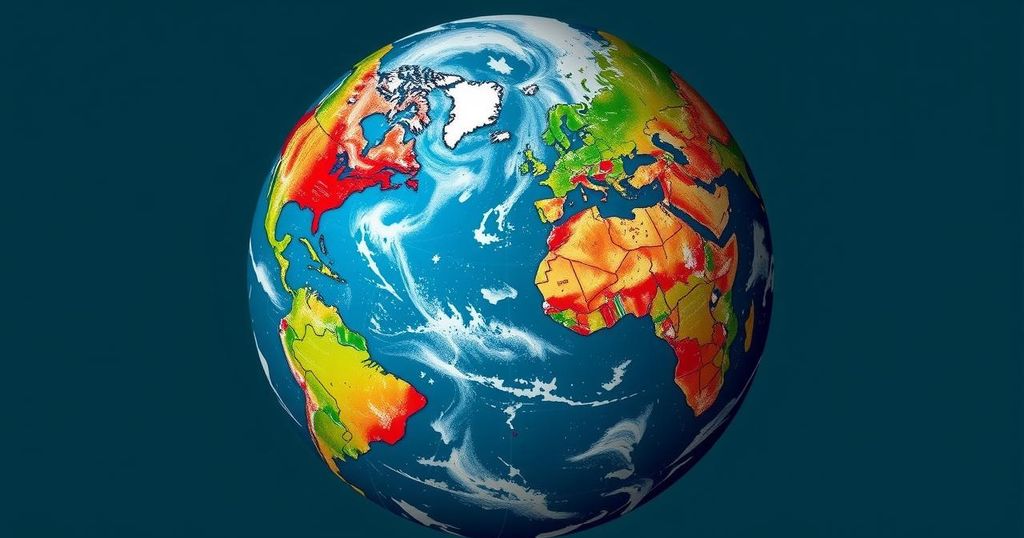At COP29, a climate deal was agreed upon, committing wealthy nations to provide $300 billion annually for developing countries by 2035. However, this pledge was met with strong criticism from poorer nations, who deemed it inadequate in addressing their climate challenges. Notable rejections came from representatives from India and Nigeria, who highlighted the necessity of significantly larger financial support to combat worsening climate disasters.
A significant climate agreement was reached at COP29, but it drew sharp criticism from developing nations who deemed the $300 billion annual commitment from wealthy nations insufficient. Despite extensive negotiations lasting two weeks, representatives from poorer countries expressed their discontent, with India’s delegate describing the deal as ‘abysmally poor’ and ‘paltry’. Concerns were raised by officials from Sierra Leone and Nigeria, who characterized the agreement as reflective of a lack of commitment from wealthier nations, amidst growing climate disasters. UN climate chief Simon Stiell recognized the limitations of the agreement, emphasizing that it was not a time for celebration but rather a call to action. The deal obliges developed countries to provide $300 billion annually by 2035 for climate resilience in developing nations, but it falls short of prior expectations and economic assessments.
The article discusses a climate finance agreement reached at COP29 in Azerbaijan, which was heavily criticized by representatives of developing countries. These nations, often the most affected by climate change, criticized a $300 billion pledge as inadequate compared to the escalating climate-related threats they face. This event unfolded against a backdrop of complex negotiations involving nearly 200 countries, highlighting long-standing tensions between rich and poor nations regarding climate responsibilities and financial commitments. The deal intends to provide financial assistance to help developing nations mitigate climate impacts, but significant gaps remain in terms of expectations and actual funding.
In summary, the recent climate deal generated considerable disappointment among developing nations who view the committed funds as insufficient given the severity of the climate crisis they face. While the agreement represents a step forward in international climate finance, critics argue that it fails to match the scale of support required for effective climate action. Developing countries continue to seek greater financial commitments from wealthier nations to ensure their resilience against climate impacts.
Original Source: www.al-monitor.com






